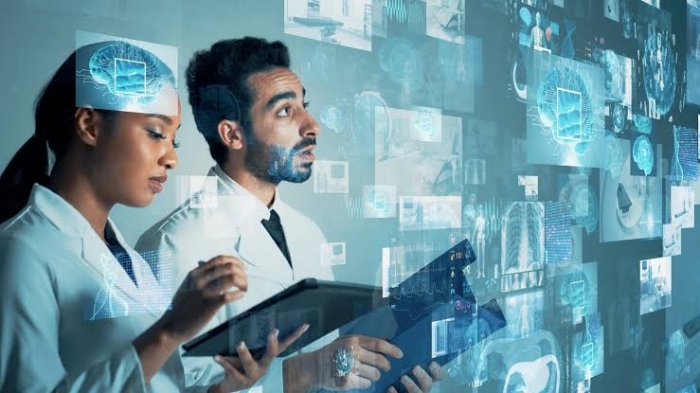Silicon Valley CEOs and UBI-advocates and others have warned us for a while now that artificial intelligence would soon be part of work. But only recently has it come into clearer focus how and to what scale.
Reading my colleague Renée Onque’s article, I learned of a new way that AI is being utilized at hospitals like Tampa General: to take notes in doctors offices. So-called “ambient AI” records and transcribes what’s said and then compiles an organized report for the physician.
Practitioners won’t have to frantically type notes during your next visit or update medical charts into the wee hours of the morning, says Nishit Patel, the vice president and chief medical informatics officer at TGH. “If we can mitigate the risks thoughtfully, this will be one of the most important, transformative moments from a health-care delivery perspective,” says Patel.
But not all doctors are enthused. AI can have “hallucinations,” notes Nathaniel DeNicola, a board-certified OB-GYN in southern California who runs his own private practice. “In my experience, it seems to make up references sometimes,” he says. “Like it’ll say something about a study, and then I go to check it, and the study doesn’t exist.”
I have many questions about the process myself. How would the doctor’s office ensure accuracy? Are human physician assistants going to be obsolete soon?
People expect a certain amount of confidentiality at the doctor. Would ambient AI break that agreement?
I’m not sure how I feel about AI yet. The swift implementation of products like this make it clear that artificial intelligence will likely be a staple of everyday life, though. It might not matter so much that I'm comfortable with it as much as that I get used to it.
CNBC
